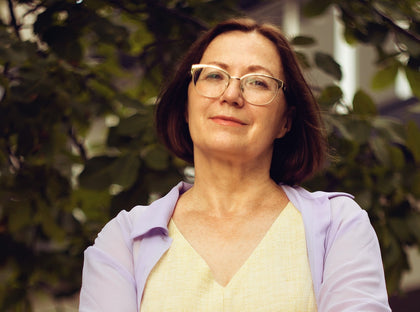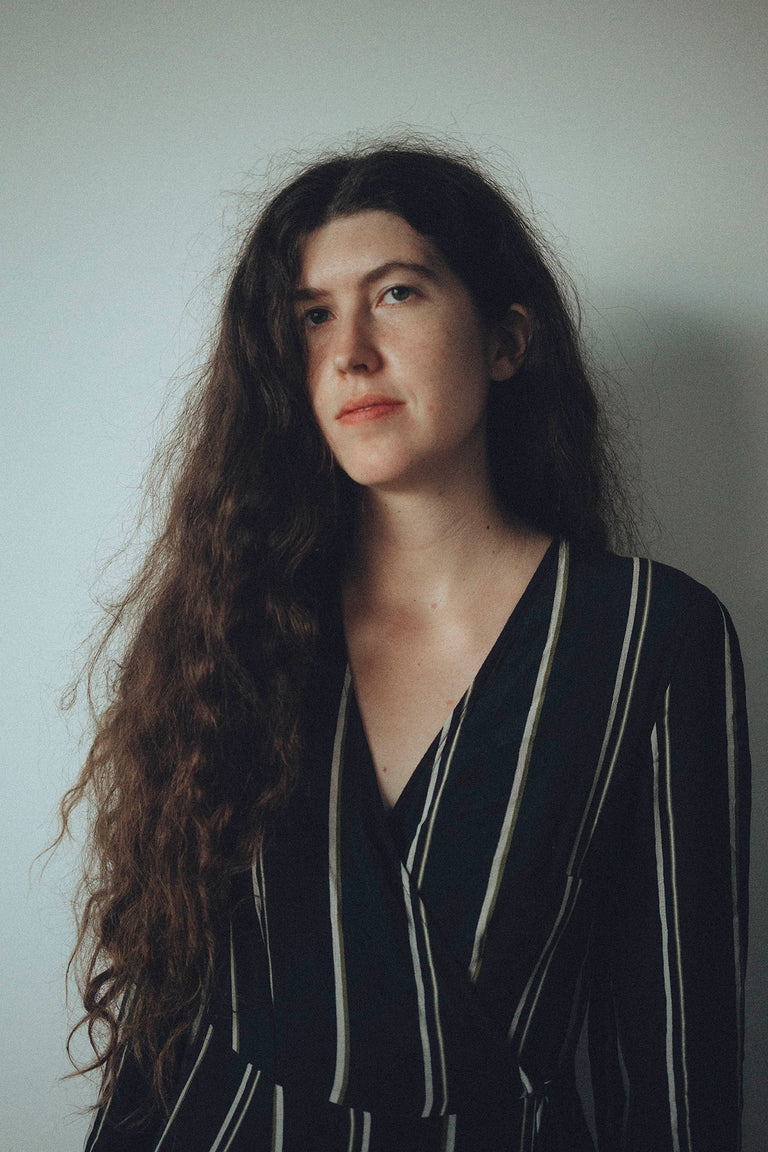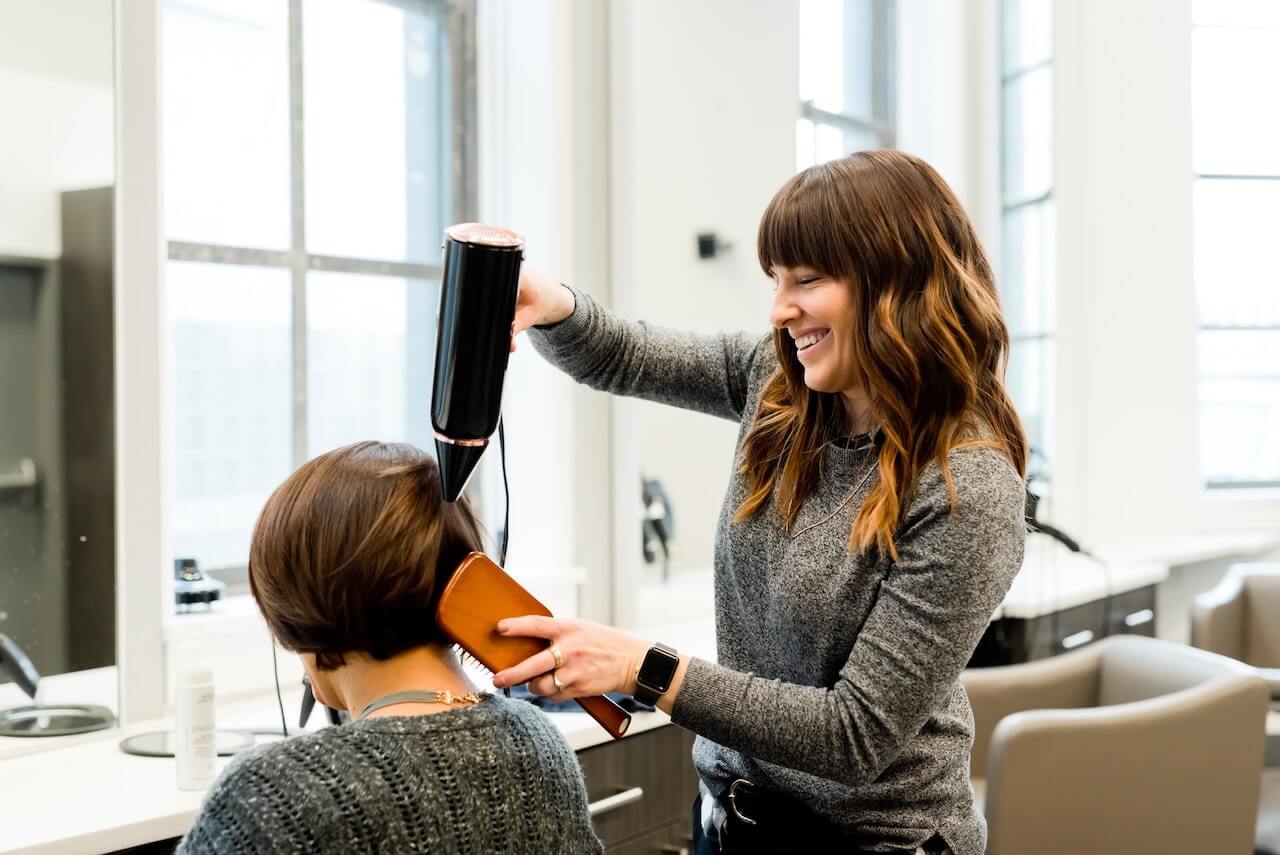Aging has its perks. We grow wiser, with a more in-depth understanding of our own needs and boundaries. But some parts of accumulating time on earth aren’t so fun: Our metabolisms slow down, our bodies take longer to heal, and our hair starts to thin out.
But you’re more in control of your hair health than you might think. Read on to learn what experts say are the best steps you can take to tackle thinning hair after age 50. Plus, discover the hair care products you need for sustainable hair health at any age.
#include-related-slider#
Why Hair Changes As We Age
“Hair gets thinner and loses volume as we age because hair follicles get senescent (old) and simply stop producing hair,” said board-certified dermatologist Dr. Kemunto Mokaya. “The follicles that produce hair make finer, thinner strands, and this contributes to hair thinning and loss of volume. Hair also grows more slowly as we age.”
While both men and women experience hair thinning as a part of aging, female hair loss can also result from hormonal changes. Nutritional gaps in our diet, plus lifestyle factors such as elevated stress, can also affect hair health.
“A lot of the age-related hair changes are due to intrinsic factors that we can do nothing about, since they are part of the natural aging process,” said Dr. Mokaya. “But some of them are also due to extrinsic factors — or example, oxidative stress. Oxidative stress from free radicals, UV radiation, chemicals, pollution and toxins weakens the hair follicles and accelerates the aging of hair.”
Combating these external factors is the key to healthier, thicker looking hair at age 50 and beyond.
Shop: Best-Selling Products for Thinning Hair
What You Can Do to Help Your Hair Age Gracefully
Healthy hair is a combination of genetics, care, internal and mental health, and high-quality products. Here are 10 things you can do to help preserve your hair health:
1. Be Mindful of Sun Protection
Many of us put on sunscreen before we leave the house, but our hair needs protection from the sun, too! UV rays can damage strands, leaving hair more prone to breakage and shedding. Keep a hat or head scarf handy and wear it whenever you’re out in the sun. In the case of a burn you didn’t see coming, make sure to rehydrate your scalp afterward with a soothing topical like pure marula oil.
Read: How to Protect Your Scalp From the Sun This Summer
2. Care for Your Scalp
Hair health starts at the scalp, and neglecting this essential aspect of hair care can lead to a buildup of products and oils that leave follicles clogged and struggling to grow new strands. Cleanse your scalp with a detoxifying scalp serum to remove buildup and support thicker, fuller looking hair use a scalp massager to help stimulate blood flow. A healthy scalp that’s free of blockage will have an easier time supporting new hair growth.
Also: Every Cause of Female Hair Loss Explained
3. Balance Your Diet
Gaps in nutrition can intensify the hormonal changes that cause hair loss as we age. If you’re not “eating the rainbow” on a daily basis, you’re likely missing out. Here are some hair health essentials to incorporate into your diet:
- Vitamin A, found in spinach, carrots, pumpkins and sweet potatoes
- Vitamin B, found in whole grains, almonds and dark leafy greens
- Vitamin C, found in citrus fruits, strawberries, peppers and guavas
- Vitamin D, found in mushrooms, fortified tofu and plant-based milks
- Vitamin E, found in avocados, almonds, spinach and sunflower seeds
- Iron, found in lentils, blackstrap molasses, dried fruits and spinach
- Zinc, found in pumpkin seeds, lentils, spinach and wheat germ
- Protein, found in tempeh, legumes and whole grains
If you’re concerned you might not be getting all the nutrients your hair needs with your daily diet, considering supplementing it with a hair-healthy vitamin like GRO Biotin Gummies, which features vitamins B-5, -6 and -12 to help support your body’s production of keratin and collagen. It also includes Vitamins A, C and E, which work to neutralize follicle-damaging free radicals, while zinc helps to promote and maintain scalp health.
Related: 9 Biotin-Rich Vegan Foods to Eat for Healthy Hair
4. Balance Your Microbiome
Your microbiome has a huge impact on hair growth and the overall health and beauty of your strands. If your stomach is out of whack, your hair will show the strain. Balance your gut by making sure you’re eating fermented foods like kimchi, tempeh and miso.
5. Reduce Stress
Stress is tough on the body at any age, and as we get older, it might cause earlier and more intense hair shedding and pigment loss. Combat stress by making time for daily exercise, meditating, and reducing your screen time as much as you can. Writing a short gratitude list every morning or doing a 10-minute meditation before bed doesn’t take long, but it can make a world of difference for your health.
Related: Everything You Should Know About Stress & Hair Loss
6. Get Regular Trims
Cutting your hair might seem like a counterintuitive way to get longer strands, but trimming can actually help aging hair appear healthier for longer. Keeping strands trimmed will help eliminate split ends, which can prevent strands from breakage and other damage.
Shop: Kathleen Barnes' Top Vegamour Picks
7. Change Up Your Hair Products
Using shampoos packed with harsh chemicals can negatively impact your hair health at all stages of life — and since your strands naturally grow thinner as you age, they’re especially vulnerable to the impacts of sulfates, parabens and other hair-harming compounds. Switch to a hair health-friendly revitalizing shampoo and conditioner set that can help repair the appearance of damage without leaving buildup behind.
8. Be Gentle on Strands
Because aging hair is more prone to breakage, it’s especially critical that you treat it gently. Avoid using hot toolswhenever possible, and cut harsh chemicals out of your hair care routine. Never brush your hair when wet — instead, detangle before washing to keep strands from getting damaged. Taking it easy on your strands will help prevent breakage and help your hair thrive.
Related: Hair Loss vs. Hair Breakage — The Difference (and Why It Matters)
9. Wash Less Often
If you’re a daily wash day kind of person, you may be inadvertently damaging your hair. Not only does exposure to too much moisture cause hygral fatigue that leaves strands stretched out and weakened, shampooing every day depletes hair of its natural oils. Since aging hair produces less oil already, this is the last thing you want!
10. Embrace Change
Last but most important, the best thing you can do for aging hair is to embrace change. Aging is an inevitable part of being human, and it comes with new forms of beauty and advantages to enjoy. Welcoming these changes with a hair wellness routine that supports and nourishes your body is definitely the way to go.
#include-related-slider#
Age Your Way
Age is just a number, but time, health and environmental factors can certainly wear on your hair. With the right combination of self-care and high-quality hair products, you can get the hair you want regardless of the number on your driver’s license.
More From VEGAMOUR
- How to Reverse Gray Hair
- Does Hair Turn Gray at the Temples First?
- Seasonal Hair Loss Explained
- How to Keep Your Hair Healthy As You Age
Photo by Maria Lupan/Unsplash



















